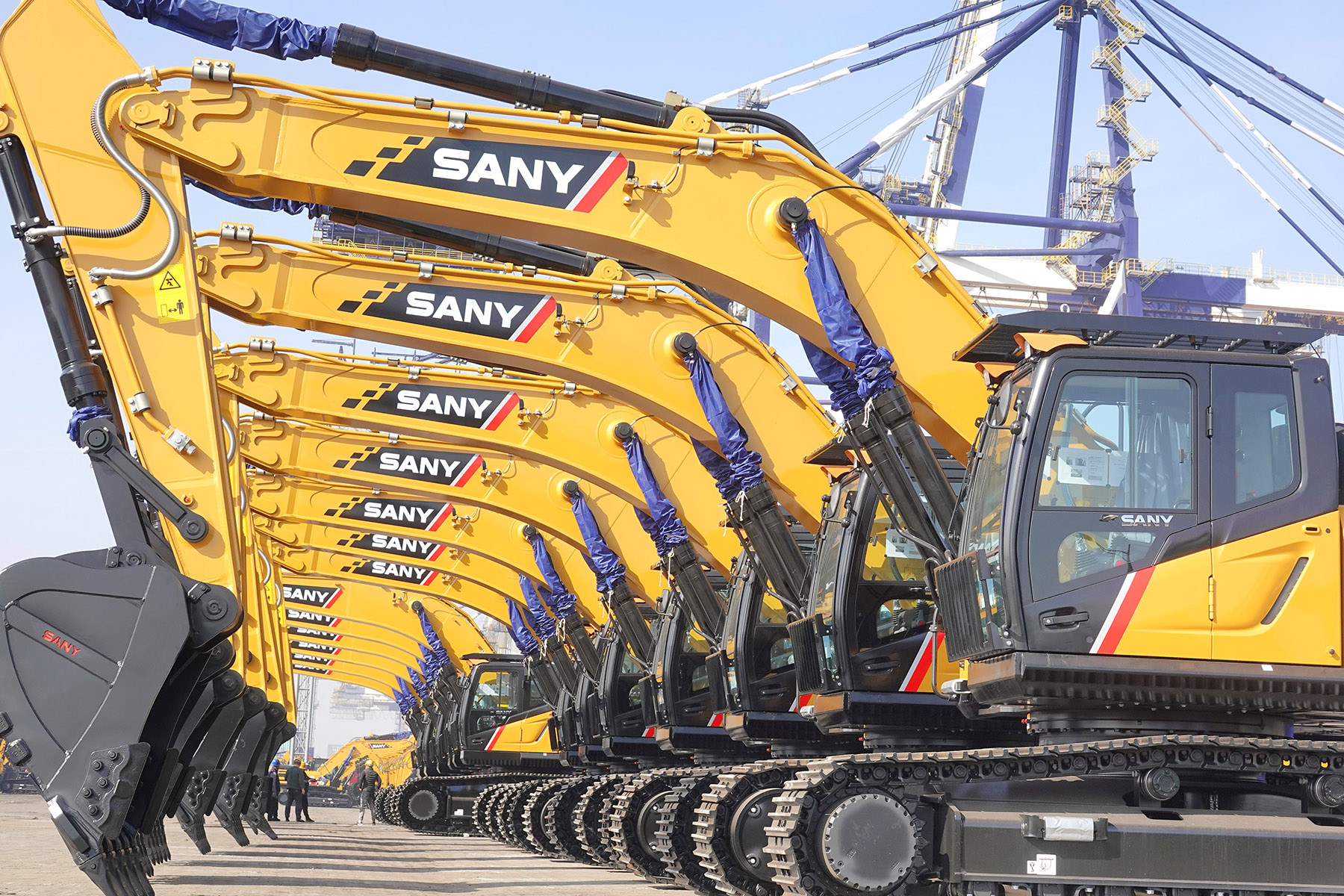Expert sees more growth opportunities for manufacturers in emerging markets

Chinese equipment manufacturer Sany Heavy Industry Co Ltd unveiled plans on Wednesday for a proposed listing on the Hong Kong stock exchange.
The company is presently engaged in discussions with relevant intermediaries to iron out the specifics of the listing, which have yet to be finalized.
It said in an announcement that the strategic decision is geared toward advancing its global strategy and bolstering ties with international capital markets.
Overseas markets have emerged as a pivotal driving force for the growth of domestic construction machinery enterprises.
READ MORE: Guming floats in HK amid fierce beverage turf war
As early as 2022, Sany Heavy Industry announced its intentions to diversify international financing channels to meet the demand of its global business expansion. The company had initially planned to issue global depository receipts (GDR) overseas and list on the Swiss Stock Exchange, but later decided to shift the GDR issuance venue from Switzerland to Frankfurt, Germany before ceasing GDR issuances in 2024, citing changes in both internal and external factors.
By the first half of 2024, Sany Heavy Industry's overseas product sales had extended to over 180 countries and regions.
Overseas markets have accounted for more than 60 percent of Sany Heavy Industry's overall performance. In the first six months of 2024, the company's overseas revenue reached 23.54 billion yuan ($3.23 billion), representing a 4.79 percent year-on-year increase. Overseas revenue comprised over 62 percent of the total, with an offshore business gross profit margin of 31.57 percent, surpassing the domestic main business gross profit margin of 23.03 percent.
A recent research report by Founder Securities highlighted the continued growth of the global construction machinery market, saying there remains significant untapped potential in overseas markets. For instance, in the excavator segment, China's market share has reached 43-44 percent in approximately 40 percent of overseas markets, while in the remaining 60 percent of key markets, the market share remains in single digits, indicating substantial room for improvement.
In recent years, as domestic demand for large infrastructure projects has waned, leading machinery companies such as Xuzhou Construction Machinery Group (XCMG), Zoomlion Heavy Industry Science and Technology Co Ltd, and Guangxi LiuGong Group Co Ltd have accelerated their overseas expansion efforts.
In February, Liu Jiancun, an overseas marketing director at Zoomlion, told China News Service that 60 percent of the company's high-altitude machinery products are shipped to overseas markets such as Europe and the United States, with a majority being new energy-powered products. The company expressed confidence in achieving significant growth on top of doubling last year's overseas sales revenue.
XCMG also expressed optimism for sustained positive momentum in the overseas market this year, with expectations of continued robust growth in export income.
The company emphasized key factors driving this trend, such as the growth potential in foreign markets for local brands, improved product quality, enhanced global distribution networks, expanded after-sales services, increased competitiveness of domestic brands and broader market reach overseas.
ALSO READ: China sets up communication mechanism with private biz
"The rapid expansion of Chinese construction machinery companies stems from their close partnerships with domestic contracting firms. This collaborative strategy, honed over decades, efficiently addresses varied construction needs while upholding project excellence and productivity. Furthermore, Chinese enterprises have delved into specialized industries via mergers and acquisitions, enhancing their technological capabilities and equipment focus," said Zhou Mi, a senior researcher at the Chinese Academy of International Trade and Economic Cooperation.
Nevertheless, in recent years, industries like construction machinery have encountered increasingly intricate M&A landscapes and stricter investment scrutiny from host nations, Zhou said.
"Companies need to capitalize on opportunities in more competitive markets like the Middle East and emerging economies. Simultaneously, they should respond to the call for environmentally friendly practices by developing green technologies, embracing new energy solutions, supporting eco-friendly construction initiatives and taking on a more proactive role in sustainable development," he added.


